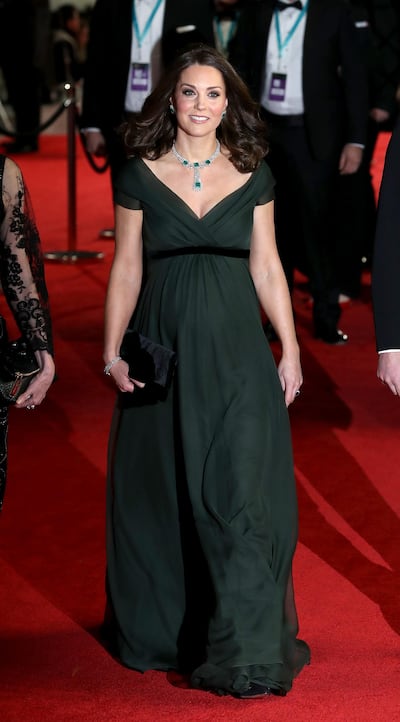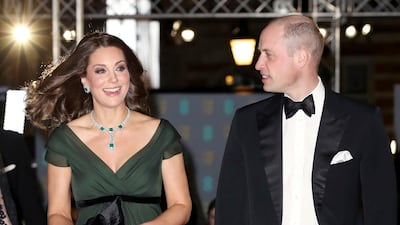Just like at the Golden Globes, the majority of stars chose to wear black on the Bafta red carpet to show support for the "Time's Up" movement - and while the Duchess of Cambridge didn't wear black, she did join in with the muted palette on the red carpet, wearing a dark green Jenny Packham dress with a black belt.
Kate, who is expecting her third child in April, attended the British Academy Film Awards with her husband, Prince William, who is president of the UK movie academy.
READ MORE: The Bafta winners
Most female guests wore black to the ceremony as a statement of support for the Time's Up movement against sexual harassment and abuse.

Kate's choice found a middle way between making a political statement — something the royal family scrupulously avoids — and ignoring the gesture by wearing a bright color.
British actors speak up
Almost 200 British female entertainment stars called for an international movement to end sexual misconduct across society in a letter that was published ahead of Sunday's British Academy Film Awards.
Kate Winslet, Kristin Scott Thomas, Emma Thompson, Naomie Harris, Emma Watson and Gemma Arterton are among those saying that 2018 should be "the year that time was up on sexual harassment and abuse."
Announcing a fund to support women and men battling workplace abuse — modeled on the "Time's Up" movement in the US — the stars said "with our collective power, we can galvanise others."
Former Harry Potter star Watson gave the fund 1 million pounds (Dh5.1 million), according to its page on the Go Fund Me website. Keira Knightley and Tom Hiddleston are each listed as having given 10,000 pounds
In a letter published in The Observer newspaper, 190 female stars called for an end to impunity for abusers and said "this movement is bigger than just a change in our industry alone."
"We believe we need to use our power as communicators and connectors to shift the way society sees and treats us," they said. "We need to examine the kind of womanhood our industry promotes and sells to the world."

